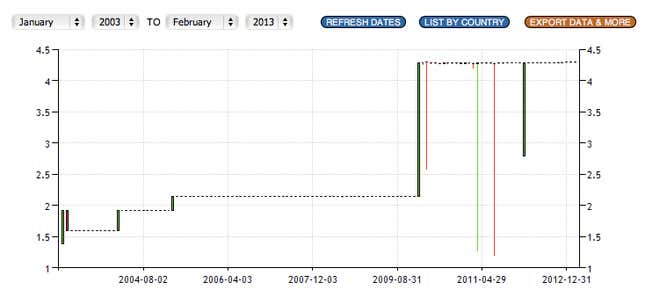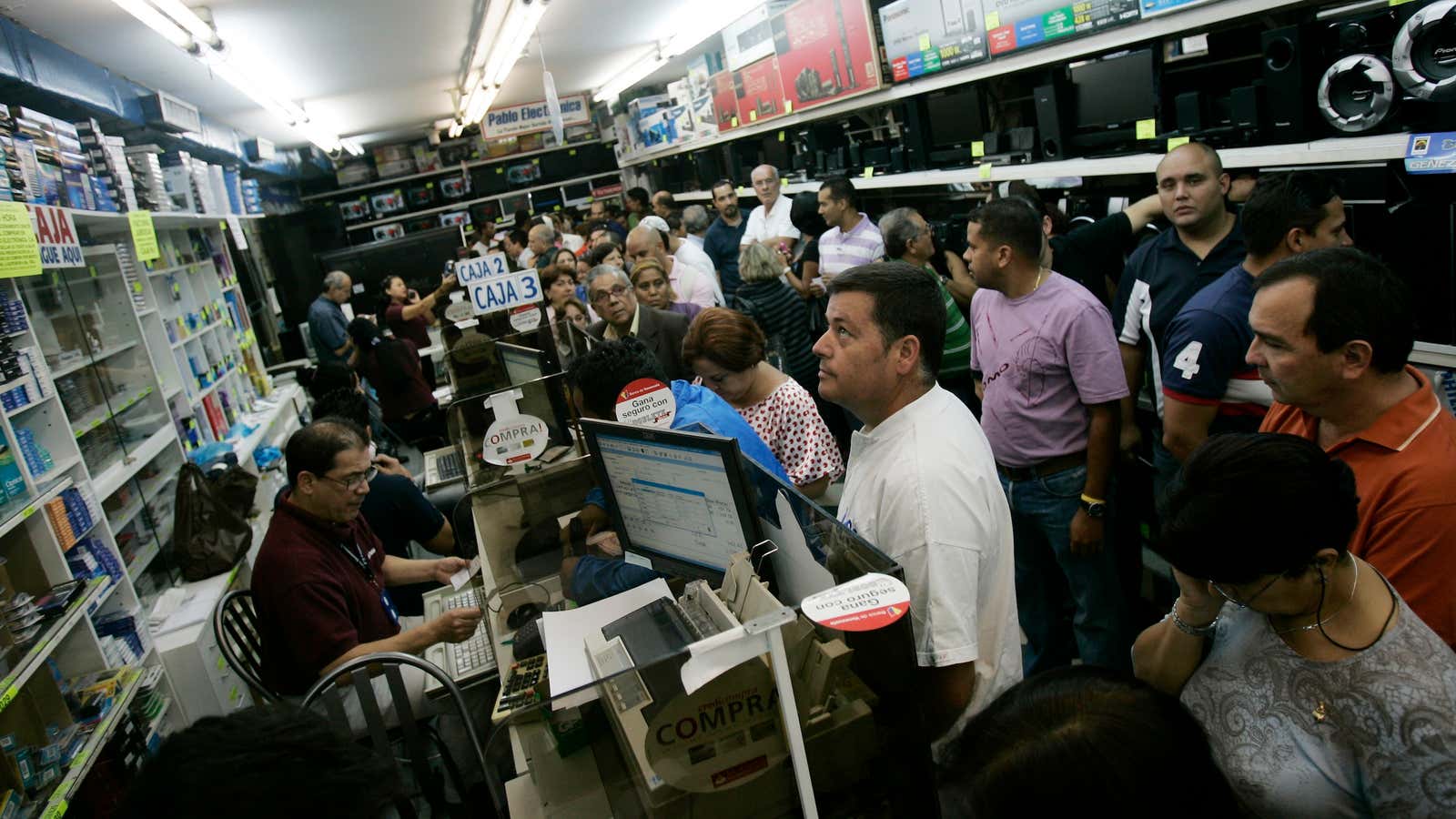It’s as if it were all a clever, nation-wide marketing scheme. Venezuelan shoppers were whipped into a frenzy by President Hugo Chavez’s announcement last week that he would devalue the bolivar, the country’s currency, by 32%.
The devaluation, which will be the 5th since 2003 (see graph) prompted a mad rush for appliances and other goods—especially imported ones—that are likely to get more expensive for Venezuelans once the currency policy kicks in. Starting tomorrow, February 13, the official exchange rate will go from 4.3 bolivars per US dollar to 6.3 bolivars.

In San Cristobal, a city in the western mountains of Venezuela, traffic congested the town’s main thoroughfares this past weekend as people rushed (link in Spanish) to acquire air conditioners, fridges, televisions, cameras and anything else they could get their hands on. Some customers—calling relatives from the electronics shop to inquire about the differences between LED and LCD television screens—made first-time purchases.
The scramble for goods was due to Venezuelans’ impending loss of purchasing power. Local economists don’t think that most wages will be hiked sufficiently to make up for the devaluation of the bolivar. In other words, consumer goods—which in Venezuela are largely imported from abroad—will become much more expensive.
The biggest losers might not even be the locals, but strangers stuck in a strange land: since 2009, foreign multinationals in Venezuela have been blocked from sending funds home, leaving $13 billion in dividends trapped in Venezuela. And now, these dividends will lose some $4.1 billion in value. Colgate-Palmolive, the soap and toothpaste vendor that generates 5% of its global sales in Venezuela, will lose $120 million. Avon, the cosmetics company, derived 11% of its global operating profit there in 2012, and it has $222 million worth of assets in Venezuelan currency, according to its most recent filings. These assets could lose a third of their value.
Several large Spanish companies, such as the telecoms company Telefónica, and BBVA, a large bank, will lose significant sums (link in Spanish). So could foreign oil comapnies like Chevron, Repsol, and Statoil, as well as Kraft, the food purveyor, and Diageo, the distiller.
That said, the devaluation is good for PDVSA, the state-owned oil company, and for the state itself. Though manipulating the value of Venezuela’s currency won’t do anything to help PDVSA pump out more oil, the company will have now have more bolivars to pay local bills, since its sales are dollar-denominated. In theory, Venezuela’s entire export sector benefits from a more competitive exchange rate, but the truth is that PDVSA is responsible for 96% of the country’s exports. As a result of the currency move, the state’s revenues will increase 4%, and Venezuela’s deficit shrink some amount.
Venezuela’s foreign affairs minister, Elías Jaua (link in Spanish) said the devaluation was “among the measures the revolutionary government has devised to strengthen national production and stimulate exports.” Nicolas Maduro, the vice president slated to take power when Chavez dies, said the move was intended (link in Spanish) to “protect the currency from speculative attacks.”
In the meantime, even the Colombians next door are streaming into Venezuela to take advantage of what now seem like shopping bargains ahead of the exchange rate move tomorrow.
